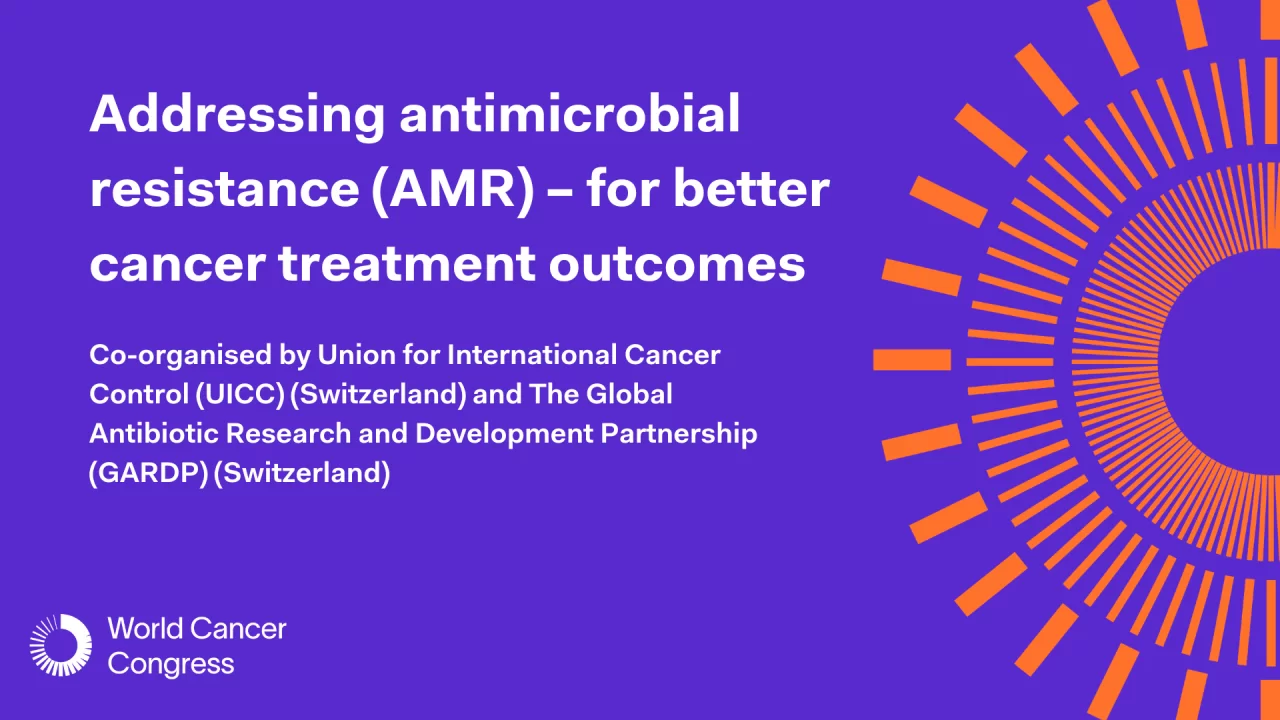GARDP at the World Cancer Congress 2022

Addressing antimicrobial resistance (AMR) – for better cancer treatment outcomes
Session co-organised by Union for International Cancer Control (UICC) (Switzerland) and The Global Antibiotic Research and Development Partnership (GARDP) (Switzerland)
Room: Plenary B
The substantial progress in cancer treatment and care is being significantly undermined with the growing threat of drug-resistant bacteria. People with cancer are more susceptible to infections due to the lowering of immune defenses, while surgery and treatments like bone marrow transplants, radiotherapy and chemotherapy put the immune system under immense pressure. As many as 1 in 5 cancer patients undergoing treatment are hospitalized due to infection, and antibiotics are the main line of defense. Furthermore, infections are the second leading cause of death in cancer patients.
One of the targets of the World Cancer Declaration (Target #07) is to improve access to accurate cancer diagnostics and multimodal treatment, and this must include access to rapid diagnostics and antimicrobials to address infections, which is a crucial part of cancer treatment. The aim of this session is to raise awareness on the threat of AMR for cancer patients and also highlight the need for infection control, rational use of drugs and access to appropriate and timely treatment.
Speakers:
1. The impact of AMR on cancer care outcomes – Lillian Sung, SIOP (International Society of Paediatric Oncology) (Switzerland)
2. Importance of focusing on infection control and rational use of medicines – Sujith Chandy, ReAct Asia Pacific, Christian Medical College Vellore (India)
3. SECURE: A collaborative initiative to expand access to essential antibiotics for cancer patients and others in the countries that need them most – Yann Ferrisse, GARDP (The Global Antibiotic Research and Development Partnership) (Switzerland)
Chaired by: Jennifer Cohn, GARDP (Switzerland)
Read the AMR Control Supplement here: https://www.uicc.org/resources/amr-control-supplement